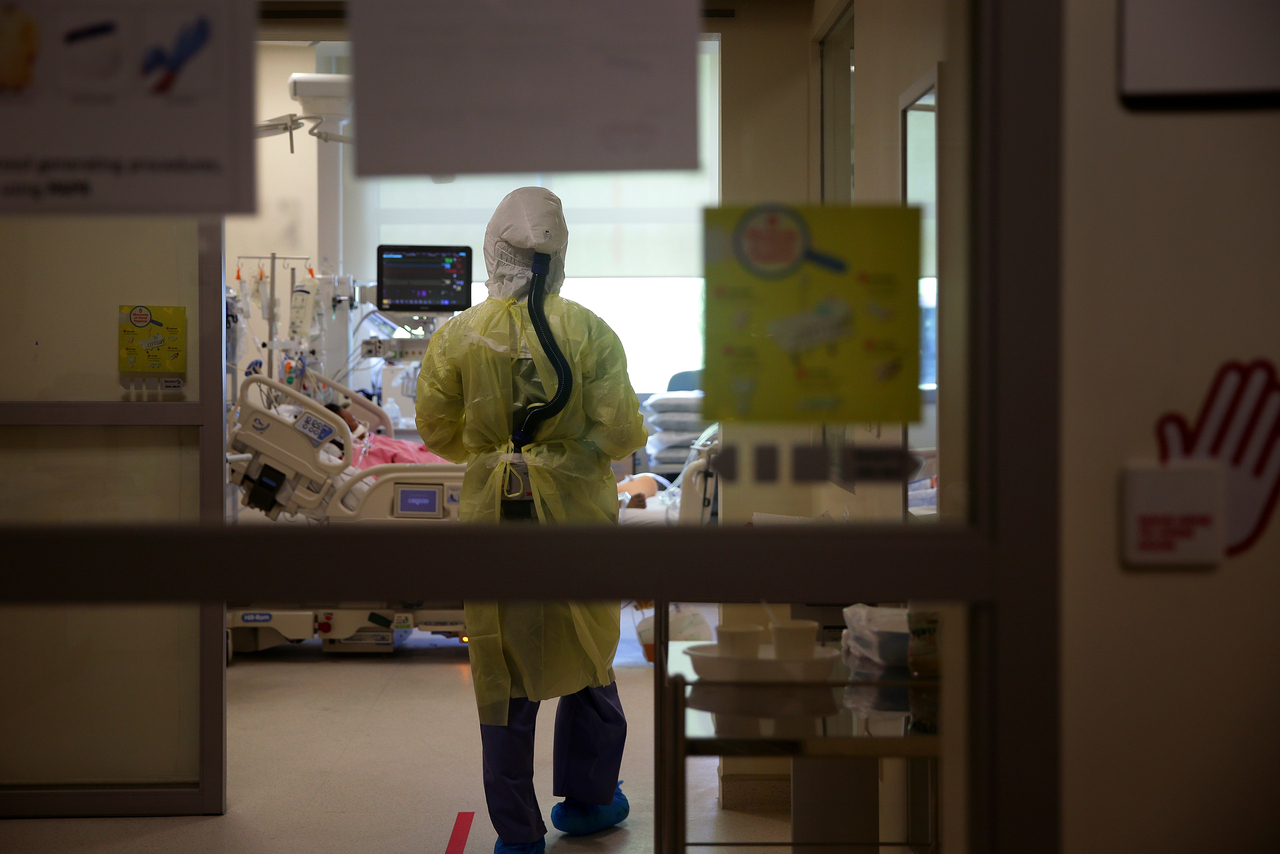S'pore's Covid-19 strategy not a 'flip-flop', helps prevent massive number of deaths: Ong Ye Kung
Sign up now: Get ST's newsletters delivered to your inbox

Covid-19 infection numbers have shot up in recent weeks and there have been more related deaths.
PHOTO: ST FILE
Follow topic:
SINGAPORE - In managing the Covid-19 pandemic, Singapore did not take a purist "zero-Covid" or "living with Covid" approach, but adopted an eradication strategy when the population was vulnerable before opening up progressively after vaccination had given Singaporeans a protective shield.
Health Minister Ong Ye Kung said this on Monday morning (Oct 18) in his opening address at the Healthcare Information and Management Systems Society Asia-Pacific Conference.
"Some may feel that this middle-of-the-road approach is unclear, and may even appear to be a 'flip-flop'. But it has helped us avert the massive deaths that many countries have suffered from," Mr Ong said.
"It is the correct approach for Singapore and, day by day, we are moving closer to the light at the end of the tunnel."
Covid-19 infection numbers have shot up in recent weeks and there have been more related deaths. The Health Ministry is hence mobilising more manpower resources, such as from polymerase chain reaction (PCR) swab operations which the ministry is doing less of. A total of 1,600 trained volunteers have stepped forward to help.
Healthcare protocols have also been simplified and the ministry is also roping in private sector hospitals to help share the burden.
Under the new protocols, there will only be three sets of rules: people who have symptoms and test positive; those with no symptoms but test positive; and close contacts of a positive case.
Mild symptoms include cough, runny nose, sore throat, body ache, diarrhoea and headache, with or without fever. Severe symptoms include shortness of breath, chest pain or pressure and loss of speech or movement.
This simpler set of rules for Covid-19 patients and their close contacts was rolled out from Oct 11, bringing an end to quarantine orders and leave of absence notices.
The aim is to make healthcare protocols easier to understand and reduce the burden on Government resources, including phone operators and quarantine officers.
The new rules override some existing ones, and come with built-in "expiration dates", meaning that people are able to resume daily life after a preset amount of time rather than wait for official test results.
They also mean that Singapore's Covid-19 strategy now relies heavily on antigen rapid tests, which typically produce results in 15 minutes and can be self-administered.
Results from PCR tests, which are processed in laboratories, take six hours to up to 12 hours for clinically urgent cases.

